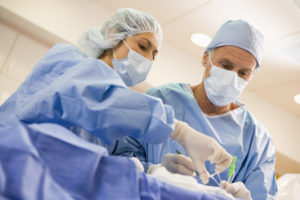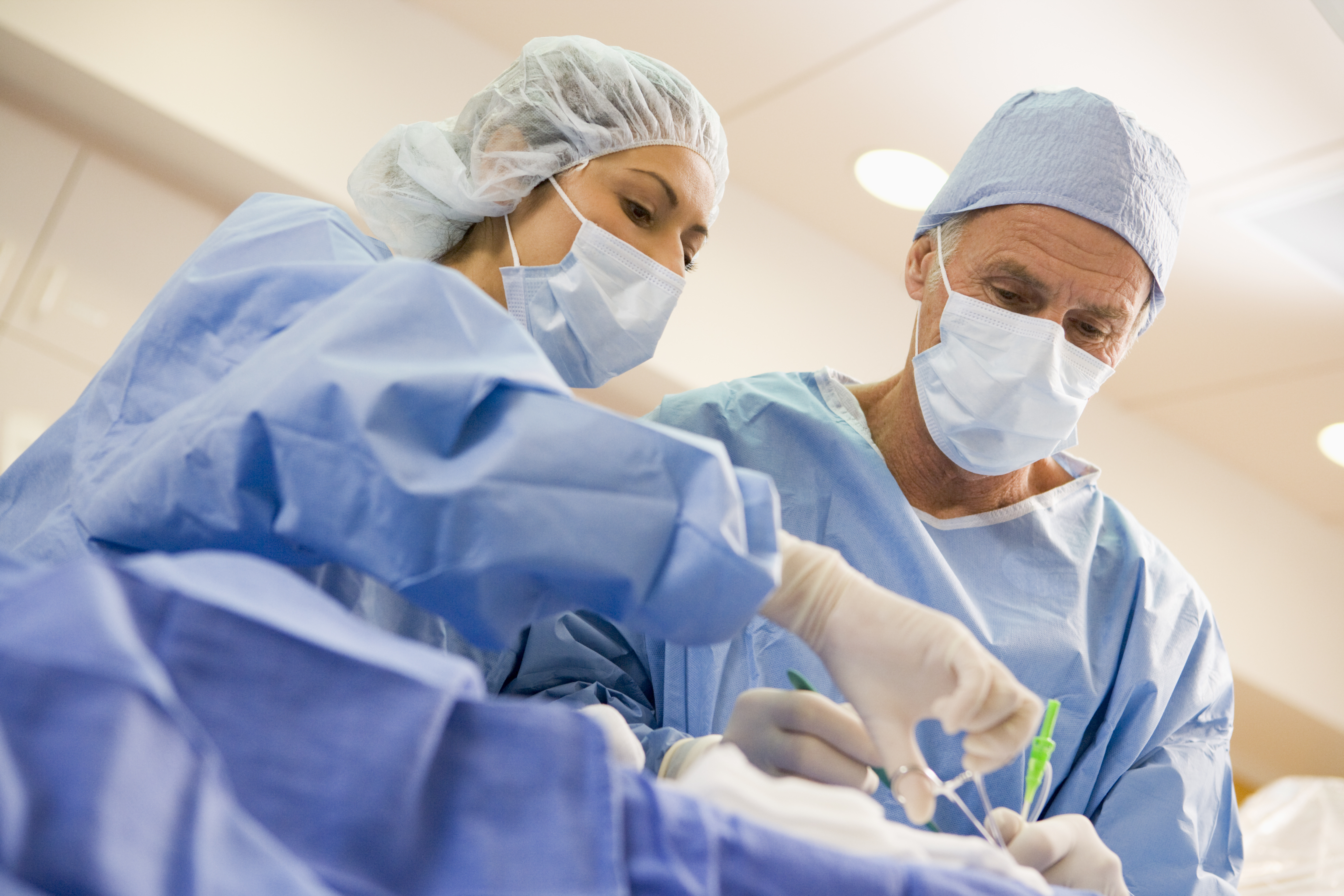
Going under anesthesia is frightening to many people. It’s scary when you’re not in control! Prior to surgery, anesthesiologists carefully question people about any health problems that you have that might impact your response to anesthesia. If you have hypertension or a history of elevated blood pressure readings, you might wonder whether anesthesia is safe. You might also wonder whether anesthesia can cause your blood pressure readings to be higher than normal. These are all good questions!
Fortunately, the anesthesiologists will monitor your blood pressure and heart rate closely before, during, and after your surgical procedure. Plus, they have medications they can administer if blood pressure becomes too high or too low during surgery. Let’s look at how anesthetic agents affect blood pressure.
How Anesthetic Agents Work
Anesthetic agents act on the central nervous system to reduce the perception of pain. These medications also induce a state where you’re unaware of what’s going on around you. Most anesthetic agents are delivered through an intravenous line or are inhaled as a gas. While under anesthesia, the anesthesiologist monitors you and is aware of how fast your heart is beating, your blood pressure, and breathing rate. He or she can adjust the anesthesia as necessary if they notice unwanted changes.
Sometimes, after surgery, people wake up and find their blood pressure is higher than normal. In fact, research shows that one out of four people experiences elevated blood pressures after surgery. Although a transient rise in blood pressure after surgery is not likely to be dangerous, you might wonder why this happens, particularly since anesthetic agents typically cause a drop in blood pressure rather than a rise. Why might this happen?
Blood Pressure Increases During Surgery
When you’re under general anesthesia, you have a breathing tube in to protect your airway. Some people have airways that are sensitive to the placement of the breathing tube. When the breathing tube is placed, after you’re asleep, your sympathetic nervous system is activated and this increases blood pressure and heart rate. Once the tube is tube is removed, the sympathetic nervous system slowly quiets down and heart rate and blood pressure gradually come down too. Not everyone experiences a rise in blood pressure during surgery. In fact, some people experience a drop. It varies with the individual, the type of anesthesia, how individuals metabolize the anesthesia, and other factors as well.
Once you awaken from surgery and you’re in pain from the surgery, the discomfort can activate your sympathetic nervous system and cause a rise in blood pressure. Once you receive appropriate pain medications, blood pressure may come down. However, some pain medications can cause an increase in blood pressure. If you’re taking a medication for pain relief that triggers a rise in pressure, blood pressure readings may remain higher until the medication wears off. One common class of medications called non-steroidal anti-inflammatory medications (NSAID) can cause a modest rise in blood pressure.
Sometimes, other factors brought on by the surgery can cause blood pressure readings to be too high. When you wake up, you might be cold or anxious, and this can cause blood vessels to constrict and blood pressure to rise. Also, if you’re not yet breathing normally, lack of adequate oxygen delivery can cause a rise in blood pressure readings. Blood pressure is also impacted by how much fluid is in your body. If you’re receiving intravenous fluids and you aren’t able to urinate after surgery, this can cause a rise in blood pressure. If you have hypertension and routinely take blood pressure medications, the anesthesiologist may have recommended discontinuing them until the surgery is over. Your blood pressure may go up because you’re not taking your medications.
Usually, blood pressure will come down a few hours after surgery, although in some cases, readings can remain high for a day or two, especially if you have a history of hypertension and have been off your medications. If blood pressure reading stays elevated for more than a day or so after surgery, let your physician know.
What if You’re on Blood Pressure Medications?
Depending upon the type of blood pressure medication you’re taking, your medical team may recommend continuing your current blood pressure medication until the day of surgery. But, if you’re taking a class of antihypertensive medications called angiotensin-converting enzymes inhibitors (ACE inhibitors) or angiotensin receptor blocking agents (ARBs), they will probably ask you to discontinue the medications at least 24 hours before surgery. That’s because taking these medications can cause a drop in blood pressure during surgery and studies show outcomes are better when these medications are held prior to surgery.
If you’re taking certain types of blood pressure medications, like beta-blockers, your medical team may recommend that you keep taking them as discontinuing them could cause a sudden spike in blood pressure. Some physicians recommend stopping diuretics, a type of fluid pill used to treat hypertension, prior to surgery to lower the risk of dehydration. However, this is variable, so talk to your physician.
Talk to Your Medical Team
During your pre-surgery evaluation, make sure your medical team knows what medications you’re taking. Bring your prescriptions along and let the team know what supplements you’re on as well. They’ll advise you of which ones you’ll need to stop prior to surgery. Also, let them know if you’re allergic to any medications. If your medical team recommends that you continue taking your medications before surgery. If so, let them know the day of your surgery what medications you took and when. Again, bring your medication bottles along. Ask lots of questions and read any informational material they give you carefully.
Conclusion
Despite the fact that anesthetic agents usually cause a drop in blood pressure, you can still experience a rise in pressures after surgery for a variety of reasons. During and immediately after surgery, your medical team will keep a close eye on your blood pressure and it’s a good idea to monitor your pressures at home after surgery, especially if you have a history of hypertension.
References:
Anesth Prog. 2010 Spring; 57(1): 13-17.
Integr Blood Press Control. 2014; 7: 49-59.
Vasc Health Risk Manag. 2008;4(3):615-627.
Anesthesiology 1 2017, Vol.126, 16-27. doi:10.1097/ALN.0000000000001404.




